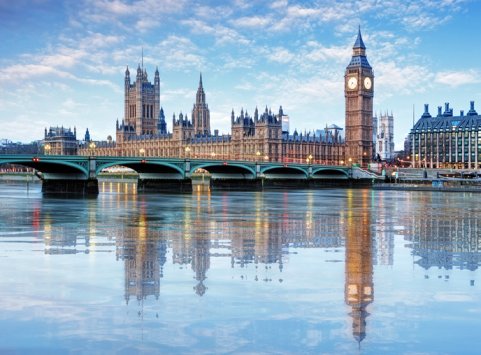Is it Safe to Travel to Turkey?
Know if Turkey is safe to travel with this guide. Learn about safety measures, common concerns, health tips, and practical advice for your trip to Turkey.
Is Turkey safe to Travel to?
-
Turkey generally boasts a commendable safety record, especially in tourist areas like Istanbul and Cappadocia, with visible security measures and tourist police presence.
-
Stay informed through local news, enroll in the Smart Traveler Enrollment Program (STEP), blend in with locals by respecting customs, and keep copies of important documents while traveling in Turkey.
-
Travelers are advised to be up-to-date on routine vaccinations and consider additional vaccinations like Hepatitis A and B, especially if visiting rural areas or consuming local food and water.
Turkey is beautifully nestled at the crossroads of Europe and Asia, and is blessed with rich history, breathtaking landscapes, and vibrant culture. It is a favorite destination among seasons and infrequent travelers. But is it safe to travel to Turkey?
Fortunately, Turkey boasts a commendable safety record, particularly in areas frequented by tourists, making it a compelling choice for those seeking both adventure and cultural immersion.
However, like any popular travel destination, it is crucial for visitors to navigate Turkey with awareness. So let’s get into the details about what makes Turkey generally safe for tourists, while also equipping you with essential tips to enhance your security and enjoyment.
The Safety Landscape in Turkey
Turkey has good security standards all over the country. In big cities like Istanbul, Ankara and İzmir, there is a strong police presence, especially in tourist areas. These cities have CCTV cameras and regular patrols to prevent crime. Popular tourist destinations like Cappadocia and the Turquoise Coast also have tourist police for assistance.
To ensure the safety and well-being of both locals and visitors amidst political fluctuations, the Turkish government has proactively stationed security forces to oversee and maintain order. But border regions near Syria and Iraq are heavily guarded because of the ongoing conflicts and travel advisory is issued for these areas, from time to time.
The country has good medical facilities in big cities. Emergency services are fast and hospitals can handle most medical needs. The local government also keeps earthquake preparedness as a priority, with building regulations and public awareness campaigns aimed at reducing the risk.
For up-to-date information, we recommend you check the Turkey Travel Advisory from the US Department of State along with the official website of the Ministry of Foreign Affairs of Turkey.
Common Safety Concerns for Turkey
While Turkey is a captivating destination celebrated for its cultural richness and natural beauty, certain areas require extra caution or are advisable to avoid due to safety concerns. As a traveler, being informed about these areas can enhance your safety and ensure a more enjoyable trip. Here's what you need to know:
Petty crimes like pickpocketing and scams could be common in crowded areas like markets and public transport. Keep your belongings safe and be wary of strangers offering unsolicited help. You must also avoid:
-
Nighttime Travel in Remote Areas: Traveling at night in isolated areas of any country can increase risks. In Turkey, stick to well-lit, populated routes during the night, especially if you are unfamiliar with the area.
-
High Crime Areas: In any bustling city, some neighborhoods may have higher instances of petty crime, such as vandalism or theft, particularly late at night. While these incidents are not widespread, it's wise for travelers to stay informed through local advice and avoid less-frequented or poorly lit areas after dark. For example, the Gypsy slum in the Zeytinköy neighborhood of Antalya is a no-go zone for tourists.
-
Political Unrest: Due to the continued armed conflict and civil unrest, it is advised against traveling within 10km of the Syrian border and except essential travel to the Sirnak and Hakkari provinces. While these regions are rich in history, current circumstances mean they are less accessible for leisure travel. Occasionally, international events may prompt demonstrations in major cities, particularly near diplomatic missions. While these are generally well-managed by local authorities, tourists are advised to avoid the vicinity of protests as a safety precaution.
Natural Disasters
Due to its geographic location, Turkey is prone to earthquakes. The country is on a major fault line, so familiarizing yourself with emergency procedures and evacuation routes can be beneficial.
During the rainy season, be mindful of potential floods and flash floods, especially when traveling. The Mediterranean and Aegean regions may have occurrences of wildfires in the summer months. Stay informed and follow advisories from local authorities to have the best way out in case of natural disasters in Turkey.
Terrorism
While terrorism can be a concern for travelers, it is generally confined to specific areas. Some regions are more volatile due to ongoing conflicts, and it's advisable to avoid these parts.
The country has strong security measures like police presence to deter threats. Airports, public transport hubs and crowded places also have tight security. Precautions such as bag checks and metal detectors are commonplace, enhancing the safety of the local public and visitors.
Practical Safety Tips for Tourists in Turkey
Turkey has a lot to offer to travelers. You can try its local food, visit Roman ruins or enjoy a sunny day on exotic beaches. But before you book your next flight to this land of wonders, research and read about its culture for a safe trip.
Stay Alert and Informed
Being aware and informed helps you react quickly to any unexpected situations so you can have a safer and better trip. Keep an eye on your surroundings, especially in crowded areas like its Grand Bazaar and when using public transport. Don’t get distracted by your phone while walking.
Regularly check local news for updates on safety concerns such as protests or natural disasters. It’s good to have some travel apps installed on your phone - to get real-time alerts and updates. Familiarize yourself with the location of the nearest US embassy or consulate. In case of an emergency, you can dial 112 to reach essential services like police, ambulance, or fire department.
Enroll in STEP
The US Department of State has launched STEP (Smart Traveler Enrollment Program) for extra help for US citizens traveling abroad. You can sign up for this service by registering your trip with the nearest US embassy or consulate for free.
Enrollment in STEP ensures you receive timely updates on travel advisories, local emergencies, and significant political developments. The US embassy can also contact you in case of an emergency like natural disasters or civil unrest. Also, it provides a way for family and friends to get in touch with when necessary.
Try Not to Look Touristy
Blending in with the locals can keep you safe in Turkey. Dress modestly and respect local customs, especially when visiting religious sites. Don’t wear flashy jewelry or expensive accessories that may attract unwanted attention.
Learn a few basic Turkish phrases like merhaba (hello), teşekkür ederim (thank you) and lütfen (please) to get by. This shows respect and will help you get around better. Be mindful of your behavior and don’t be loud or disruptive and attract unwanted attention.
Following local customs and etiquette makes you less of a target for scams or petty crime. You must also be discreet when using maps or guidebooks so you don’t look lost or vulnerable.
Keep in Touch with Loved Ones
Tell a trusted friend or family member about your whereabouts. Update them regularly on where you are and any changes to your itinerary. Use social media or messaging apps to check in and let them know you’re good.
If you’re going on day trips or tours, give them the names and contact details of the tour operators or places where you’ll be staying. In case of an emergency having someone who knows where you are can be a huge relief.
Necessary Vaccinations
When traveling to Turkey, make sure you are up to date with all necessary vaccinations for your health. Here are the ones recommended for travelers:
Routine Vaccinations
Before you travel, make sure you are up to date on routine vaccinations. These include:
- Measles-Mumps-Rubella (MMR)
- Diphtheria-Tetanus-Pertussis
- Varicella (Chickenpox)
- Polio
- Influenza
These are given in childhood, but adults need boosters from time to time as required. Apart from these, here are some additional vaccinations that might be recommended by a doctor.
Hepatitis A
Hepatitis A is strongly recommended for all travelers to Turkey. The virus generally spreads through contaminated food and water. Therefore, the vaccine offers long-term protection and is particularly crucial for those planning to visit rural areas or consume local tap water and food.
Hepatitis B
Hepatitis B vaccine is advised for travelers who are likely to be exposed to infected blood or bodily fluids. This exposure could occur during medical or dental treatments, or through intimate contact with local residents.
Typhoid
Typhoid is spread through contaminated food and water. The typhoid vaccine is recommended if you will be in smaller cities or rural areas where sanitation might be poor.
Rabies
Travelers to Turkey who plan to engage in outdoor activities such as camping, hiking, or cave exploration are advised to consider the rabies vaccine. These activities can increase the likelihood of contact with animals. It is also recommended for travelers who stay in remote areas for longer periods.
Other Considerations
- Yellow Fever: Not required as such, but if you’re coming from a yellow fever area you may need to show proof of vaccination.
- Japanese Encephalitis: Generally not necessary unless you’re staying for an extended period in rural areas during the rainy season when mosquito populations are higher.
Health related entry requirements can also change quickly, so keep checking the latest information from official sources like the Turkish Ministry of Health or your airline before you travel. And don’t forget to follow health and safety protocols like wearing masks, social distancing and good hand hygiene while in Turkey to have a safe and enjoyable trip.
Pre-Travel Consultation
See a healthcare provider or travel clinic 4-6 weeks before you travel to Turkey. They will give you personalized advice based on your health, travel plans and vaccination history. By staying up to date with these vaccinations, you can reduce your risk of illness and have a safe trip to Turkey.
Making the Most of Your Visit While Staying Safe
Turkey has lots to offer to tourists, from its iconic sites like Hagia Sophia and Cappadocia’s fairy chimneys to local cuisines like kebabs, mezes, baklava and traditional Turkish tea. But to make the most of your trip, prefer traveling with reputable tour operators and avoid isolated areas, especially at night.
You must also carry copies of important documents, keep in touch with friends or family, and dress modestly in line with local customs. With these precautions, you can focus on the cultural experiences, landscapes and warm hospitality Turkey has to offer.
-
Engage in Local Culture
Get the feel of Turkish culture by visiting markets like the Grand Bazaar in Istanbul and trying local food like kebabs and baklava. Respect local customs, dress modestly and be aware of your surroundings to avoid petty theft.
-
Adventure and Activities
Enjoy hot air ballooning over Cappadocia’s landscapes and hiking the scenic Lycian Way - but with caution. Ensure your tour operators are reputable and follow safety guidelines for outdoor activities. Tell someone back home about your plans and stay connected.
-
Historical Sites to Visit
When visiting iconic landmarks like Hagia Sophia, Ephesus, and Topkapi Palace, be careful of your wallets or bags. These are generally safe, but keep an eye on your belongings and avoid isolated areas, especially at night. Check local news for any safety concerns.
Turkey with AXA Travel Protection
At a minimum, your travel insurance to Turkey should cover trip cancellation, trip interruption and emergency medical expenses. When it comes to international travel, the US Department of State outlines key components that should be included in your travel insurance coverage.
AXA Travel Protection plans are designed with these minimum recommended coverages in mind.
- Medical Coverage – The top priority is making sure your health is in order. With AXA Travel Protection, you can have access to quality healthcare during your trip overseas in the event of unexpected medical emergencies.
- Trip Cancellation & Interruptions – Assistance against unexpected trip disruptions can dampen the mood, AXA Travel Protection offers coverage against unforeseen events.
- Emergency Evacuations and Repatriation – In situations where transportation is dire, AXA Travel Protection offers provisions for emergency evacuation and repatriation.
- Coverage for Personal Belongings – AXA offers coverage for your belongings with assistance against lost or delayed baggage.
- Optional Cancel for Any Reason – For added flexibility, AXA offers optional Cancel for Any Reason coverage, allowing you to cancel your trip for non-traditional reasons. Exclusive to Platinum Plan holders.
Your Turkey Adventure Awaits
Traveling in Turkey can be amazing and life-changing, when done safely. By preparing beforehand, taking a few simple steps, and keeping your wits about, you can have a fantastic time with memories to last a lifetime.
Also Read: Turkey, Travel Requirements: Turkey
FAQs
1. What to do if I lose my passport in Turkey?
Keep a copy of your passport and other important documents in a separate place for emergencies like this. They can help you get a replacement. The course of action would be to report it to the local police and contact your country's embassy or consulate.
2. Is public transportation in Turkey safe for tourists?
Traveling by public transportation in Turkey is generally safe. But it is best to use well-known services like buses, trams, and metros. Be wary of unregistered taxis. Also, if it gets crowded on the bus or train, secure your belongings to prevent pickpocketing.
3. Is it safe to travel to Turkey as a woman?
Traveling in Turkey alone, including for women, is safe with some precautions. Big cities like Istanbul, Ankara and tourist areas are generally safe and welcoming for solo travelers. Women should stay in well-lit, populated areas and not walk alone at night. Dress modestly and respect local customs to avoid unwanted attention. Using reputable transportation and accommodation is also important for safety
4. What are the main health risks for tourists in Turkey and how to avoid them?
While traveling in Turkey, tourists may face minor health risks but can be managed with some precautions. One of the main risks is food and waterborne illnesses, which can be avoided by drinking bottled water, eating at reputable restaurants and making sure food is well cooked. Insect bites, although less common, can be avoided by using insect repellent and wearing long sleeves and pants.

Get AXA Travel Insurance and travel worry free!
Travel Assistance Wherever, Whenever
Speak with one of our licensed representatives or our 24/7 multilingual insurance advisors to find the coverage you need for your next trip Get an instant quote!




